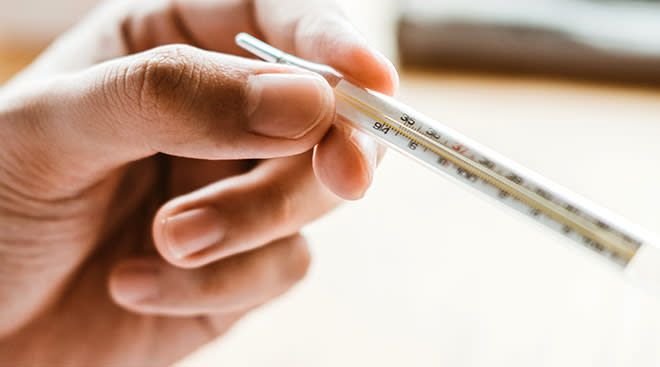Does AZO Help With Kidney Stones?
[ad_1]
Kidney Stones are a pain in the butt but it is important to know there is help out there. There can be multiple causes of kidney stone which affects one of every five patients each year. You might not feel comfortable going to see a doctor right away but you should take some time to educate yourself before you go.
If you’re dealing with kidney stone problems then it’s important to know how Azo works because this might help reduce the pain or make it easier for swelling to go away after passing a stone. This article will cover all of what you need to know about Azo and the treatment it provides.
Does AZO Help With Kidney Stones?
Yes, it does. Azo helps to relieve pain and discomfort associated with kidney stones. Azo is a drug that can be used for kidney stones and bladder infections in the short term, but it does not have any long-term effects on these conditions. It contains aspirin and other ingredients like caffeine, vitamin C, and acetaminophen.
Azo is a medication that is used to treat bladder and urinary tract infections. It comes in the form of a pill, liquid, or powder and is inserted into the urethra. The medication was designed to help “numb” the area and ease any pain or discomfort that may be associated with these types of infections.
Recommended: Lifespan Of Your Liver: 10 Tried And True Ways To Enhance It
Azo is also an over-the-counter medication that can also be used to treat UTIs. Some people believe that it can also help with kidney stone prevention, but no studies have been conducted on its effectiveness in this area. It is important to note that Azo has not been approved by the FDA for use in treating kidney stones and that there are no guarantees that it will be effective.
It does not cure kidney stones, but it will help make your urethra feel better and can help you pass the stone more quickly. The FDA has not approved Azo for use in the treatment of kidney stones, but many doctors prescribe it to help with the pain.
How Does AZO Help With Kidney Stones?
Azo is a common over-the-counter drug that works by “numbing” the urethra, which helps relieve pain and frequency of urination. It helps to reduce the amount of blood in the urine which reduces pain from the blood. If it is combined with drinking lots of water, it should help get kidney stones out.

Azo also helps with kidney stones by breaking down the stone’s mineral content. This makes the stones easier to pass and can help to prevent them from forming in the future. Azo is most effective when used in combination with other treatments, such as hydration and dietary changes.
Recommended: Colon Flushing: The Benefits And Risks
Side Effects Of AZO
In general, azo can help with kidney stones by flushing out the urinary tract and dissolving the stones. However, there are some potential side effects of using azo, which may include diarrhea and vomiting. These side effects may subside after a few days of use.
While it is effective in most cases, one side effect is that if you miss the toilet, your pee will leave an orange stain on anything it hits.
Azo is a medication meant to help with the symptoms of UTIs. It comes in tablet and liquid form, and should not be used if you are pregnant or breastfeeding.
Always consult your doctor before starting any new treatment plan for kidney stones.
Top 10 AZO Products For Kidney Stones
From our research so far and based on top-selling and most recommended AZO products on Amazon people tend to use more for kidney stones, we came up with this list of top 10 Azo products you can use for kidney stones in case you don’t know which products to try first. They include:
- AZO Cranberry Urinary Tract Health Dietary Supplement
- AZO Complete Feminine Balance Vaginal Probiotics for Women
- AZO Men Bladder Control
- AZO Bladder Control with Go-Less Daily Supplement
- AZO Yeast Plus Dual Relief Tablets
- AZO Dual Protection (Urinary + Vaginal Support)
- AZO D-Mannose Urinary Tract Health
- AZO Urinary Pain Relief
- AZO Urinary Pain Relief Supplements
- AZO All Natural Concentrated Cranberry Tablets
AZO is an over-the-counter drug that you can easily purchase from any drug store or superstore near you. You can easily order it online from Amazon.
What Other Pills Are Good For Kidney Stones?
Kidney stones are usually treated by drinking a lot of fluids, which will help flush the stone out. The following list includes medication that may help to relieve the pain associated with kidney stone formation. They are:
Recommended: Diabulimia: All About The Eating Disorder For Diabetics
Common Causes And Symptoms Of Kidney Stones?
Causes Of Kidney Stones
Kidney stones form when there is a build-up of minerals on the inner lining of the kidneys. This can be caused by many things such as:
- Not drinking enough water
- Excessive sweat, or a dry climate
- Unhealthy lifestyle. People who are overweight or obese are more likely to develop kidney stones.
- Eating too much salt.
- Inflammatory bowel disease and chronic diarrhea. These medical conditions can increase the risk of kidney stones because they can cause dehydration or reduce the amount of urine produced.
- Dehydration
- Problems with digestion, or eating too much protein or food that is too acidic or alkaline.
Kidney stones are caused by a variety of things, but one of the main causes is not drinking enough water. When the body doesn’t have enough fluids to dilute its urine, it can cause minerals like calcium oxalate to crystallize and form stones.
Recommended: Can Natural Testosterone Boosters Be Harmful?
Kidney stones are the second most common cause of kidney pain. A bladder infection can also lead to kidney pain if it leads to an obstruction in the urethra or blood seepage into your kidneys through another route.
Symptoms Of Kidney Stones
Kidney stones may present a variety of symptoms, the most common of which are:
- A dull ache in the lower back or side
- Nausea
- Vomiting
- Blood in urine
- Pain when urinating.
There are several symptoms of kidney stones that you should be aware of. If you experience abdominal discomfort and an urgent feeling, it could mean that the infection has moved from your urinary tract into your kidneys. Additionally, fever, chills, and pain in the lower back are common symptoms of a cold.
Kidney stones can cause problems if they move or become large enough to affect a person’s life. The larger kidney stones may get stuck in the urinary tract and cause pain, nausea, vomiting, and fever. If a kidney stone blocks the flow of urine out of the body, it can lead to serious problems like infection and even death.
What Are The Symptoms Of Kidney Stones In Children?
Kidney stones may cause different symptoms in adults and children. In general, the most common symptoms of kidney stones are pain and blood in the urine. However, these symptoms may vary depending on the size and location of the stone.
Recommended: Convulsions In Children: 5 Tips To Help Prevent It
Kidney stones might not always cause noticeable symptoms, but when they do, the pain can be severe and colicky. Other symptoms in children that might accompany kidney stones are nausea or vomiting, cloudy or foul-smelling urine, fever, chills, or weakness. If a child experiences any of these symptoms along with the presence of kidney stones, it is best to seek medical attention right away.
Prevention Of Kidney Stones
Kidney stones are a common problem and can be very painful. They are formed when the body tries to process too many minerals at once, including calcium. This can cause the minerals to become concentrated and form stones. There are a variety of ways to prevent kidney stones, including:
- Drinking plenty of fluids
- Eating a healthy diet
- and taking medications as prescribed by your doctor.
Prevention of recurrent stone formation is crucial to the treatment of kidney disease and to preventing future recurrence. While some stones can be eliminated with medication, most will require surgery. However, there are a few steps you can take to help prevent stones from forming in the first place.
Recommended: Can You Treat Jock Itch With Athlete’s Foot Cream?
FAQs
When Should You Not Take AZO?
Azo may not be safe for people with certain conditions. It is important to speak with a doctor before taking it if you have any of the following:
- Heart Disease
- Diabetes
- Liver disease
- Pregnancy
- Alcohol dependency
Can You Take AZO Cranberry Everyday?
Yes, you can take AZO Cranberry everyday as a dietary supplement. It’s a great way to get the benefits of cranberries without added sweeteners. However, cranberry juice, apple cider vinegar, and lemon juice are not helpful for kidney stones.
Cranberry juice is a great way to help prevent or treat UTIs and bladder infections. Cranberries are also packed with antioxidants, making them a health food staple.
Recommended: Potential Benefits of CBD for People with Diabetes
Does AZO Antibacterial Turn Urine Orange?
Yes, azo antibacterial turns urine orange. An azo antibacterial is an organic compound that has the ability to kill bacteria by removing electrons from its molecules. When a substance with this property comes into contact with urine it can turn it a deep orange color.
Azo antibacterial will turn urine orange if it is consumed in large quantities. The substance can also leak into the bloodstream and cause a person to have an orange tint to their skin, lips, and eyes.
Is AZO An Antibiotic?
No, azo is not an antibiotic. It is a drug that can be used for kidney stones and bladder infections in the short term, but it does not have any long-term effects on these conditions.
The medical information provided in this article is provided as an information resource only. This information does not create any patient-physician relationship and should not be used as a substitute for professional diagnosis and treatment.
[ad_2]
Source link




